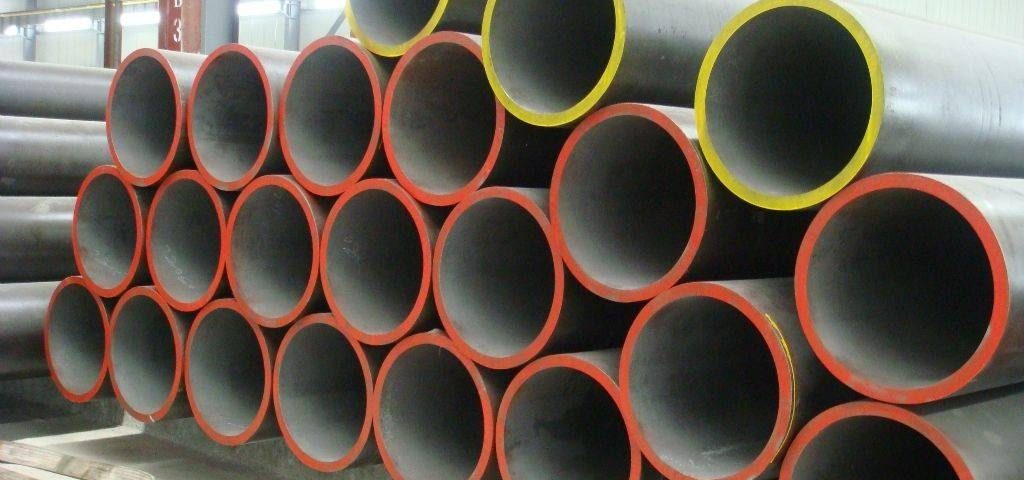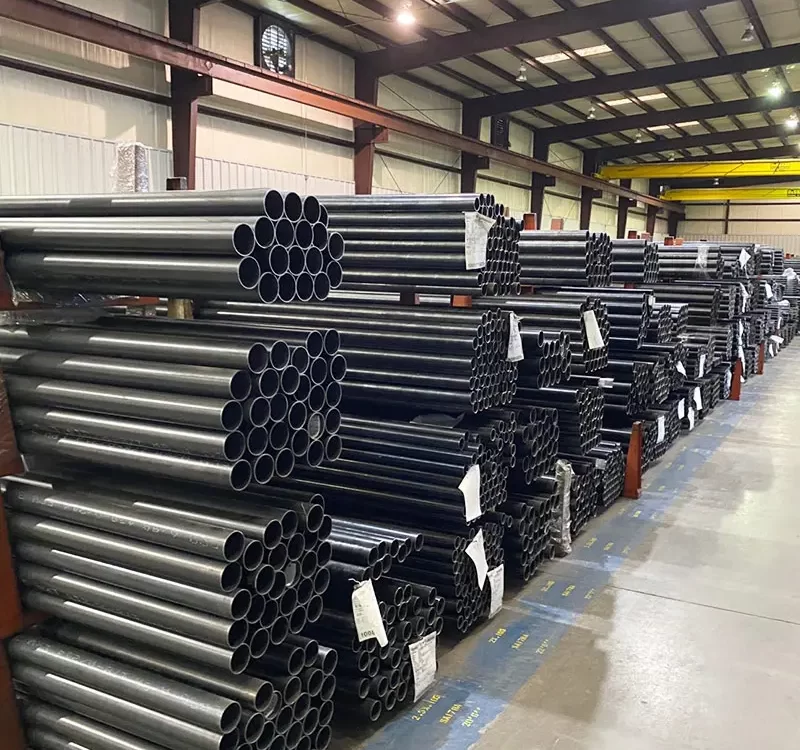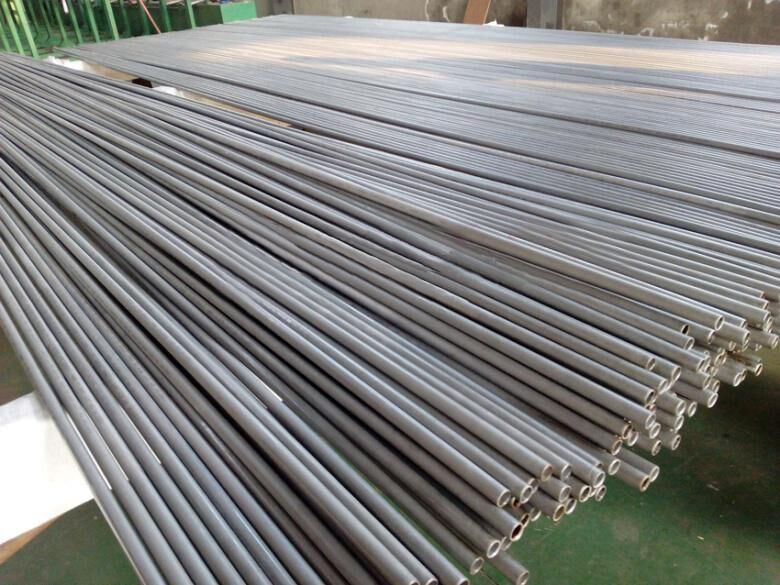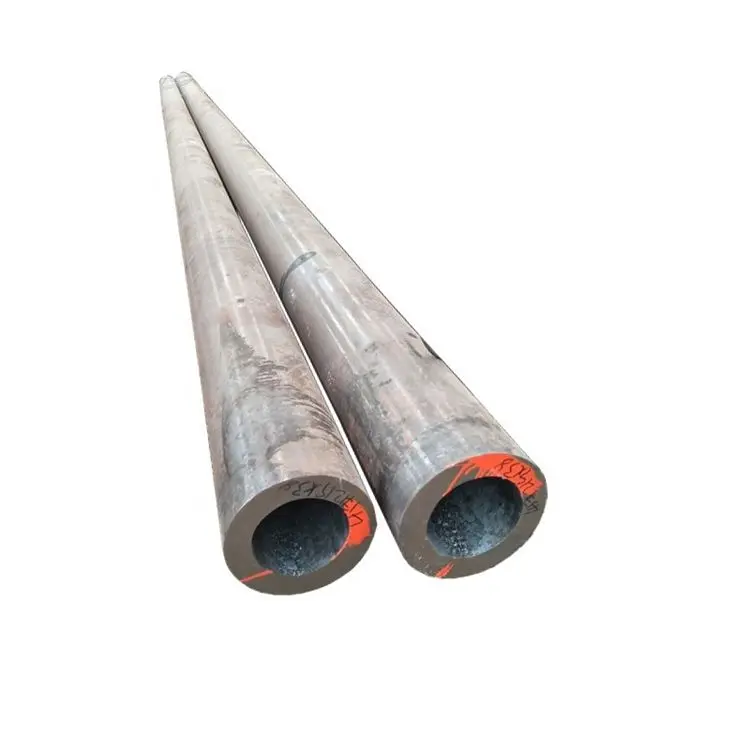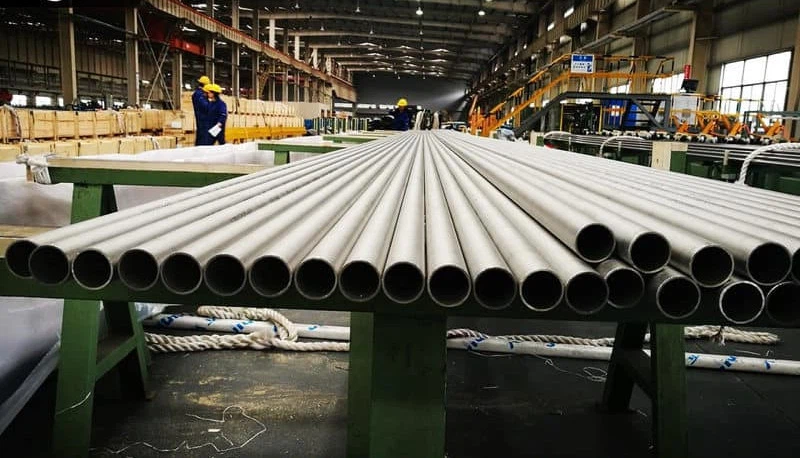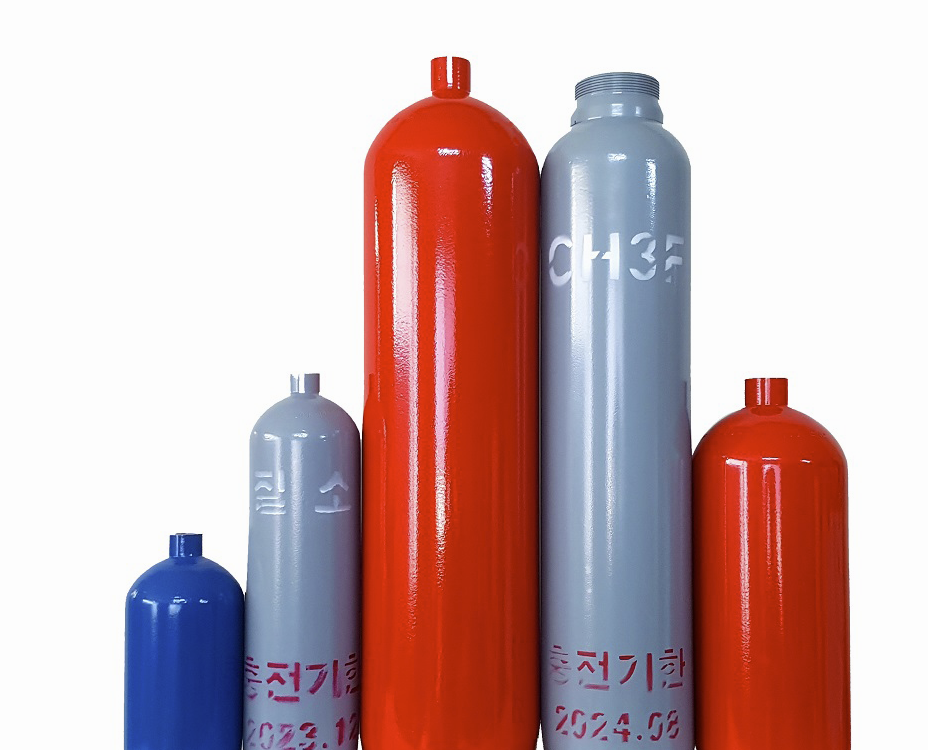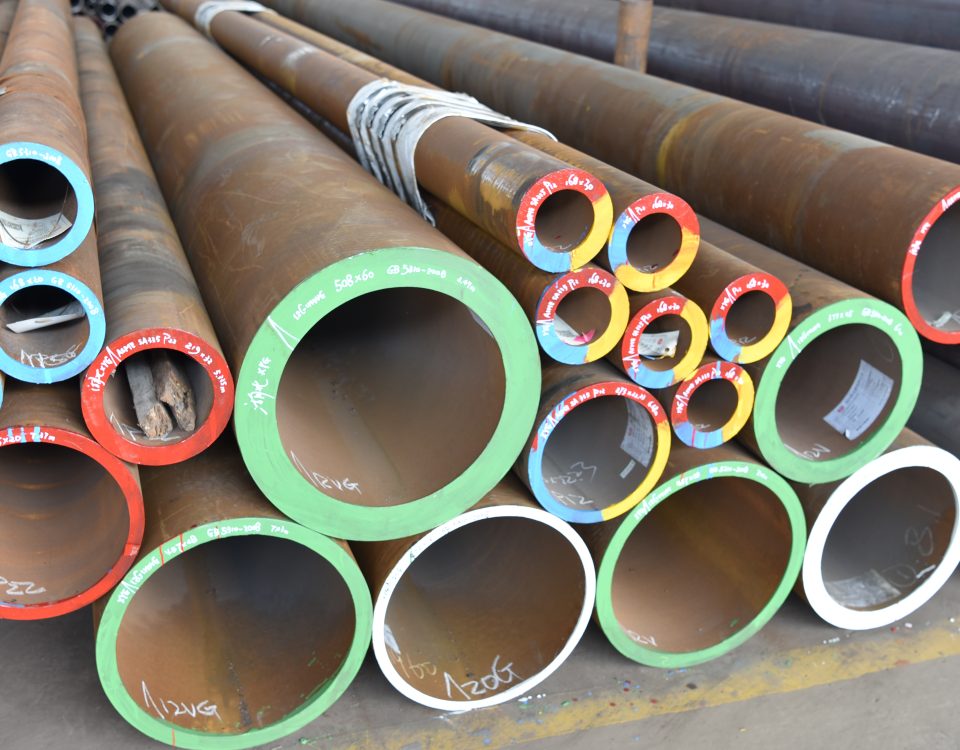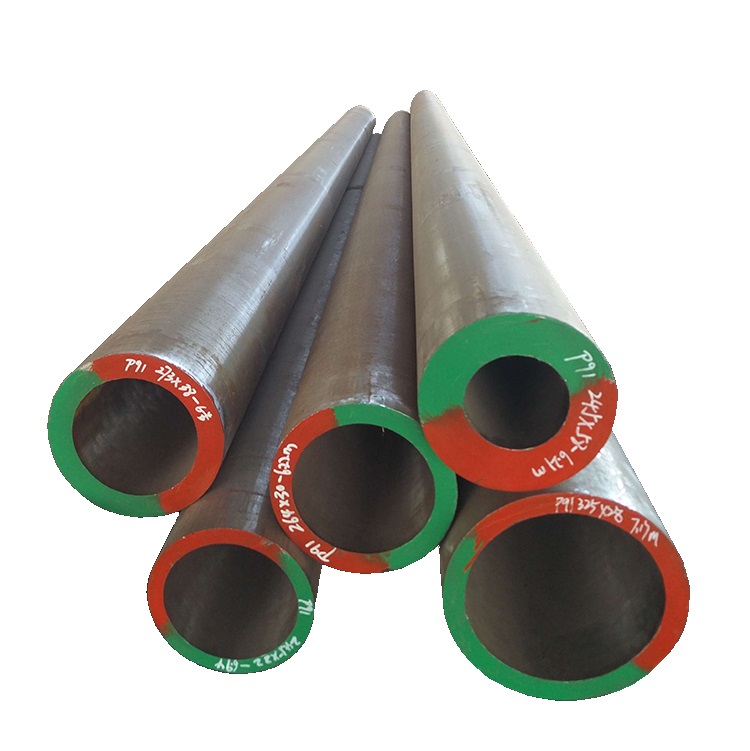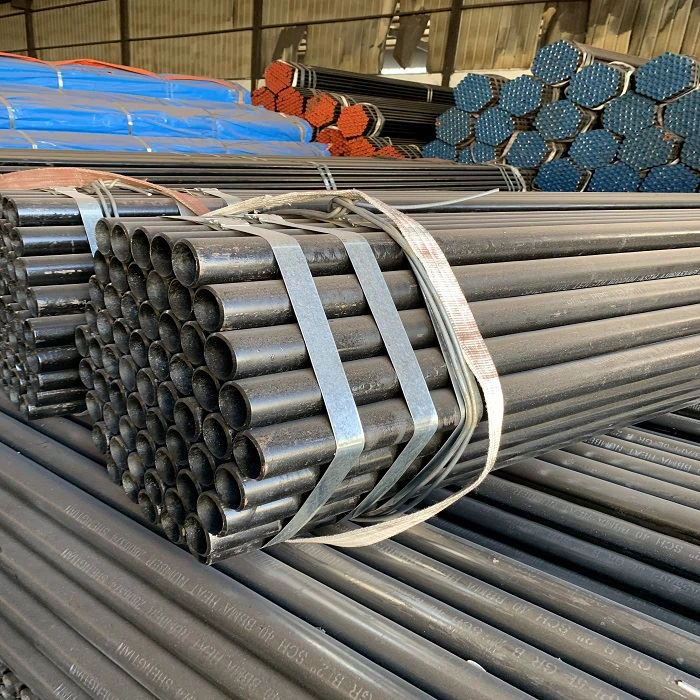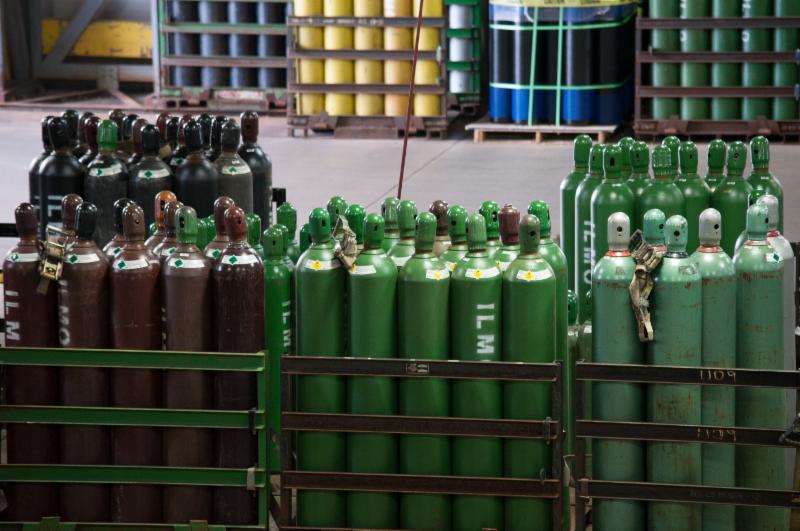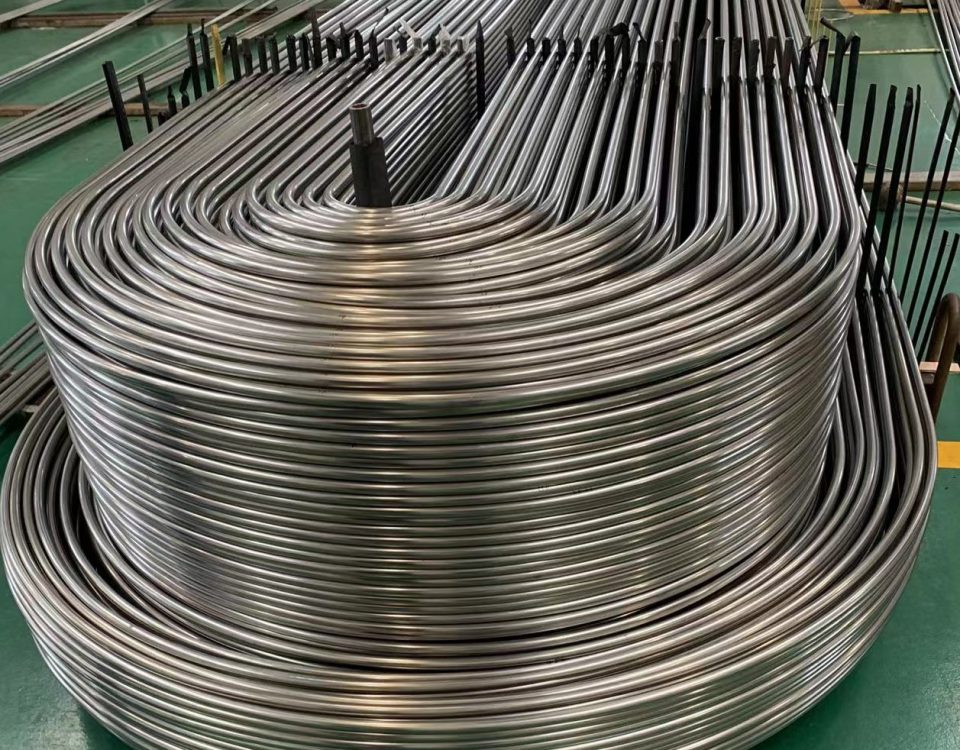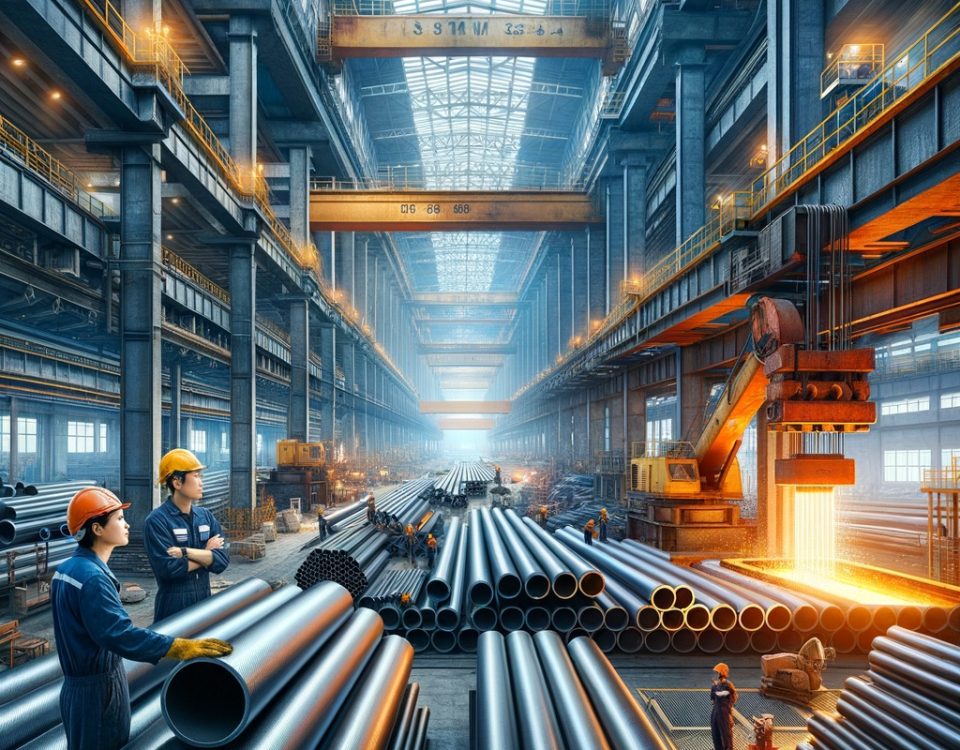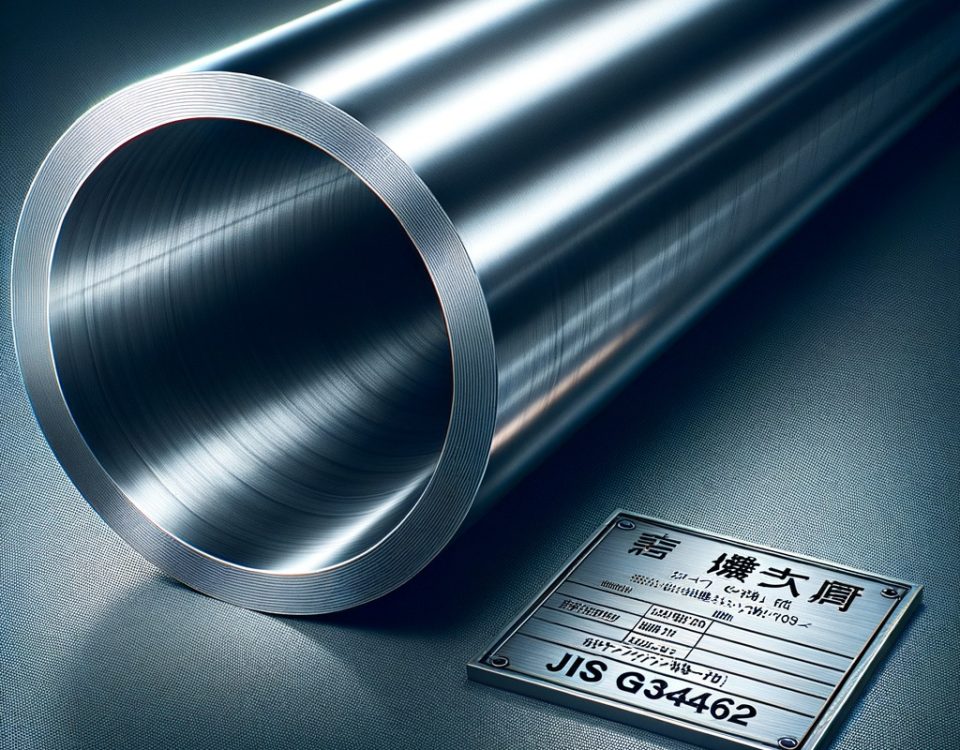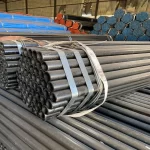
09CrCrSb Steel Pipe, ND Steel
March 6, 2024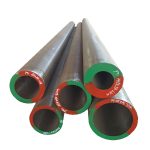
13CrMo4 Alloy Steel Pipe
March 12, 202412Cr1MoV Alloy Steel Boiler Pipe: A Reliable Choice for High-Temperature Applications
Introduction
In the world of boiler pipes, the 12Cr1MoV alloy steel boiler pipe stands out as a reliable and efficient option. With its unique composition and exceptional properties, this alloy steel pipe is widely used in high-temperature applications, particularly in boiler systems. In this comprehensive guide, we will explore the characteristics, applications, advantages, and considerations of 12Cr1MoV alloy steel boiler pipe. By understanding its features, you can make an informed decision when considering this type of pipe for your boiler system.
Understanding 12Cr1MoV Alloy Steel Boiler Pipe
Composition and Properties
The 12Cr1MoV alloy steel boiler pipe is made from a specific grade of alloy steel. The “12Cr1MoV” designation refers to its chemical composition, which includes elements such as chromium (Cr), carbon (C), and molybdenum (Mo). This combination of elements gives the alloy steel pipe its unique properties.
12Cr1MoV alloy steel boiler pipe exhibits high strength, good toughness, and excellent heat resistance. These properties make it suitable for applications that require resistance to high temperatures and pressures. Additionally, the alloy steel composition provides enhanced corrosion resistance, ensuring durability and longevity in boiler systems.
Mechanical Properties
The mechanical properties of 12Cr1MoV alloy steel boiler pipe are as follows:
- Yield Strength: 470-640 MPa
- Tensile Strength: 255 MPa
- Elongation: 21%
These mechanical properties ensure the pipe’s ability to withstand high temperatures and pressures in boiler systems.
W.T. Tolerance
The wall thickness (W.T.) tolerance of 12Cr1MoV alloy steel boiler pipe varies based on the specified range. The tolerance is as follows:
- W.T. < 3.5: +15% (-10% for minimum tolerance) (+0.48mm minimum tolerance, +0.32mm minimum tolerance)
- W.T. 3.5-20: +15%, -10%
- W.T. > 20:
- For D < 219: ±10%
- For D ≥ 219: +12.5%, -10%
These tolerances ensure the proper fit and functionality of the boiler pipe system.
Applications of 12Cr1MoV Alloy Steel Boiler Pipe
Due to its exceptional properties, 12Cr1MoV alloy steel boiler pipe finds applications in various industries, particularly in boiler systems. Some of the common applications include:
- Power Plants: 12Cr1MoV alloy steel boiler pipe is used for transporting high-temperature fluids and gases in power plants. It can withstand the extreme conditions of power generation, ensuring efficient and reliable operation.
- Petrochemical Plants: In petrochemical plants, 12Cr1MoV alloy steel boiler pipe is utilized for transporting hot gases and liquids. Its high strength and heat resistance make it suitable for handling the demanding conditions of petrochemical processes.
-
Refineries: 12Cr1MoV alloy steel boiler pipe is also employed in refineries for transporting high-temperature fluids and gases. It ensures the safe and efficient operation of the refining processes.
Advantages of 12Cr1MoV Alloy Steel Boiler Pipe
The use of 12Cr1MoV alloy steel boiler pipe offers several advantages, making it a preferred choice for high-temperature applications. These advantages include:
- High Strength and Toughness: The alloy steel composition provides 12Cr1MoV with high strength and toughness, enabling it to withstand high temperatures and pressures in boiler systems.
- Excellent Heat Resistance: 12Cr1MoV alloy steel boiler pipe exhibits excellent heat resistance, allowing it to handle the extreme temperatures generated in boilers. This ensures the pipe’s durability and longevity in high-temperature environments.
- Enhanced Corrosion Resistance: The alloy steel composition of 12Cr1MoV provides enhanced corrosion resistance, making it suitable for applications in corrosive environments. It ensures the longevity and reliability of the boiler pipe system.
- Good Weldability and Formability: 12Cr1MoV alloy steel boiler pipe offers good weldability and formability, making it easy to install and maintain. This contributes to the overall efficiency and reliability of the boiler system.
Considerations for 12Cr1MoVAlloy Steel Boiler Pipe
While 12Cr1MoV alloy steel boiler pipe offers numerous advantages, there are a few considerations to keep in mind when using it in your boiler system:
- Temperature Limitations: Although 12Cr1MoV alloy steel boiler pipe can withstand high temperatures, it has certain limitations. It is essential to ensure that the operating temperature of your boiler system does not exceed the maximum temperature limit recommended for this alloy steel.
- Corrosive Environments: While 12Cr1MoV alloy steel boiler pipe has enhanced corrosion resistance, it is still important to consider the specific corrosive environment in which it will be used. If the environment is highly corrosive, additional protective measures may be necessary to ensure the longevity of the pipe.
- Proper Installation and Maintenance: To maximize the performance and lifespan of 12Cr1MoV alloy steel boiler pipe, proper installation and regular maintenance are crucial. This includes ensuring proper welding techniques, inspecting for any signs of damage or corrosion, and promptly addressing any issues that may arise.
- Compliance with Standards: When selecting and using 12Cr1MoV alloy steel boiler pipe, it is important to ensure that it complies with relevant industry standards and regulations. This ensures that the pipe meets the necessary quality and safety requirements for your specific application.
FAQ
1. What are the main elements in the chemical composition of 12Cr1MoV alloy steel boiler pipe?
The main elements in the chemical composition of 12Cr1MoV alloy steel boiler pipe are carbon, silicon, manganese, phosphorus, sulfur, chromium, molybdenum, cuprum, nickel, and vanadium.
2. What are the mechanical properties of 12Cr1MoV alloy steel boiler pipe?
The mechanical properties of 12Cr1MoV alloy steel boiler pipe include a yield strength of 470-640 MPa, a tensile strength of 255 MPa, and an elongation of 21%.
3. What are the applications of 12Cr1MoV alloy steel boiler pipe?
12Cr1MoV alloy steel boiler pipe is commonly used in power plants, petrochemical plants, and refineries for transporting high-temperature fluids and gases.
4. What are the advantages of using 12Cr1MoV alloy steel boiler pipe?
The advantages of using 12Cr1MoV alloy steel boiler pipe include high strength and toughness, excellent heat resistance, enhanced corrosion resistance, and good weldability and formability.
5. What considerations should be taken into account when using 12Cr1MoV alloy steel boiler pipe?
Considerations when using 12Cr1MoV alloy steel boiler pipe include temperature limitations, corrosive environments, proper installation and maintenance, and compliance with standards.
Conclusion
In conclusion, 12Cr1MoV alloy steel boiler pipe is a reliable and efficient choice for high-temperature applications, particularly in boiler systems. Its unique composition and exceptional properties make it suitable for withstanding high temperatures, pressures, and corrosive environments. Whether you need a reliable pipe for power plants, petrochemical plants, or refineries, 12Cr1MoV alloy steel boiler pipe can meet your requirements.
Remember, when considering 12Cr1MoV alloy steel boiler pipe for your boiler system, it is crucial to source it from reputable manufacturers or suppliers and consult with experts to ensure its suitability. Proper installation, operation, and maintenance, along with adherence to industry standards, will contribute to the longevity and reliability of your boiler pipe system.
By understanding the characteristics, applications, advantages, and considerations of 12Cr1MoV alloy steel boiler pipe, you can make an informed decision and confidently choose this type of pipe for your boiler system.

